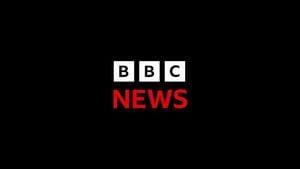TikTok, the popular social media platform with approximately 170 million users across the United States, is facing imminent darkness as the clock ticks down to its potential ban set for January 19. The Supreme Court recently rejected the company's last-ditch effort to have the ban declared unconstitutional on free speech grounds, which has left both creators and users scrambling to comprehend what this means for their future on the app. President Joe Biden imposed legislation directing TikTok's parent company, ByteDance, to separate its interests from the popular platform by the looming deadline. If TikTok fails to find a non-Chinese buyer, reports indicate the ban will take full effect, cutting off access to users and putting creators’ livelihoods at risk.
The legislation passed last spring received bipartisan support amid fears of national security vulnerabilities. Lawmakers expressed concern over China's data gathering practices—if TikTok is forced to comply with demands from Beijing, sensitive data from American users could end up compromised. "Do we want children's data to be going to China or staying here?" questioned White House National Security Advisor Jake Sullivan, highlighting the gravity of the situation.
While TikTok's future hangs precariously, the question now shifts to the United Kingdom: could similar measures be adopted across the pond? For now, government officials have announced there are “no plans” to introduce any form of ban. A spokesperson affirmed, “This is a matter for the US government,” assuring audiences they engage regularly with major social media companies on data protection concerns.
Yet the UK has not entirely escaped the whisper of TikTok's potential discontinuation. Though the app remains operational for now, it has already been banned from government devices citing cybersecurity risks—an indication of underlying concerns about the platform. TikTok creators from the UK have noted how the impending US ban could reverberate across the Atlantic. Carine Gilbert, one such creator, shared her fears with the Times, stating, “If all of our American followers are gone, how many followers do we have left?” For British influencers reliant on American audiences for brand partnerships and income, being cut off could have serious financial consequences.
TikTok's fate is not only significant for individual creators but also their associated businesses. British retailer eFones indicates half of its revenue originates from sales on TikTok, prompting them to reassess expansion plans within the US market as uncertainty looms. Chris Dawson, editor-in-chief of the e-commerce site ChannelX, stressed the impact, saying, “While Instagram and YouTube are lining up waiting for TikTok to go dark, the reality is neither platform can replace TikTok Shop nor the TikTok affiliate network.”
Impacts extend to the platform's creative influencers, like Tom Pratt from London, who voiced his concerns about the sheer influence of American users on TikTok's ecosystem. “The US as a country is so powerful and big, and I don’t think TikTok can keep going if there’s no American users on the app,” Pratt reflected. Influencers commonly leverage US viewers for their reach, engagement, and financial viability; losing this audience could force many to rethink their career choices, leading some to seek traditional employment as their TikTok plans fade.
With the deadline nearing, TikTok has hinted it may be forced to go dark, warning users they will be redirected to informational pages about the ban when they attempt to log on post-January 19. Existing users may retain access, but their lack of updates might make the platform less functional over time. Importantly, TikTok has asked for reassurance from the Biden Administration about the non-enforcement of the ban, as not taking decisive action could present enduring hardships for the social media giant.
Notably, incoming President Donald Trump has indicated he may grant TikTok a 90-day extension, but nothing has been confirmed as of yet. This uncertainty raises questions about whether the president-elect will seek to reverse the ban or exercise his influence to push for solutions. Leading Republican voices like Senator Tom Cotton have vehemently condemned TikTok, branding it as "a communist spy app" and urging firm responses to protect American citizens.
The potential for international repercussions from such actions does not go unnoticed. Experts suggest it is only “a matter of time” before US allies may mimic the ban. Analyses highlight past instances where the US's security decisions pressured allies, including cases revolving around Huawei and Kaspersky Labs. “There are big parallels between TikTok and what happened with Huawei,” shared Emily Taylor, editor of the Cyber Policy Journal. If the US fully implements the ban, it could trigger similar actions across allied nations with compromised security partnerships.
For TikTok’s creators and users, the looming uncertainty cloaks the platform’s future. If the ban proceeds, many fear the direct consequences on their means of self-expression and income generation. Already, individuals are exploring alternative platforms like Instagram Reels or Snapchat Spotlight, hoping to recreate some semblance of their TikTok experience if the app loses its status. This looming disbanding hints at broader economic ramifications, as TikTok's booming e-commerce operations could shrink without substantial US user interaction.
With mounting pressures from lawmakers and the ticking clock toward the ban, the future remains unclear for TikTok and its legions of users. The extent to which economic, cultural, and creative impacts resonate worldwide depends significantly on the actions taken over the coming days. The world watches closely as the US figures out its stance on TikTok, leaving British creators holding their breath.



